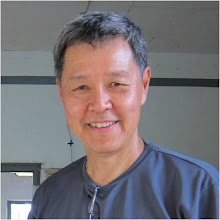 This goes back to just before when Vogel first coined the term Pharmacogenetics in 1959. In 1957, a young paediatrician, Wong Hock Boon (he was barely 34 years old then), discovered that the cases of neonatal jaundice giving rise to the devastating condition of kernicterus in Singapore was very different from those reported in the West (Wong HB, Archives of Diseases in Childhood, 32:85, 1957). Collectively, the causes of kernicterus in the West (Rhesus incompatibility, ABO incompatibility and prematurity) only accounted to about a thrid of cases in Singapore. At the time of reporting, he was not able to figure out what lay behind the remaining two thirds, but about a year previously, Carson (Carson, P. E.; Flanagan, C. L.; Ickes, C. E.; Alving, A. S. : Enzymatic deficiency in primaquine-sensitive erythrocytes. Science 124: 484-485, 1956) had described an inherited deficiency in glucose 6 phosphate dehydrogenase that predisposed to drug (primaquine) induced haemolytic anaemia. Subsequently these dots connected, and it became clear that kernicterus in Singapore was largely due to neonatal haemolytic anaemia in babies who had G6PD deficiency.
This goes back to just before when Vogel first coined the term Pharmacogenetics in 1959. In 1957, a young paediatrician, Wong Hock Boon (he was barely 34 years old then), discovered that the cases of neonatal jaundice giving rise to the devastating condition of kernicterus in Singapore was very different from those reported in the West (Wong HB, Archives of Diseases in Childhood, 32:85, 1957). Collectively, the causes of kernicterus in the West (Rhesus incompatibility, ABO incompatibility and prematurity) only accounted to about a thrid of cases in Singapore. At the time of reporting, he was not able to figure out what lay behind the remaining two thirds, but about a year previously, Carson (Carson, P. E.; Flanagan, C. L.; Ickes, C. E.; Alving, A. S. : Enzymatic deficiency in primaquine-sensitive erythrocytes. Science 124: 484-485, 1956) had described an inherited deficiency in glucose 6 phosphate dehydrogenase that predisposed to drug (primaquine) induced haemolytic anaemia. Subsequently these dots connected, and it became clear that kernicterus in Singapore was largely due to neonatal haemolytic anaemia in babies who had G6PD deficiency.What followed was perhaps the most underrecognized, success stories in pharmacogenetics. In 1964, Singapore started its systematic neonatal screening programme for G6PD deficiency (unless I am mistaken, it may have been the first in the world to do it), and was able to bring down dramatically the incidence of kernicterus in our newborns. Taiwan and Hong Kong didn't get into it until the 80's.
And this was all due to clinical astuteness of Dr Wong Hock Boon, who in 1962 became Professor Paediatrics in the then University of Singapore. Sadly he passed away last year (December 2008) at the age of 85.








No comments:
Post a Comment